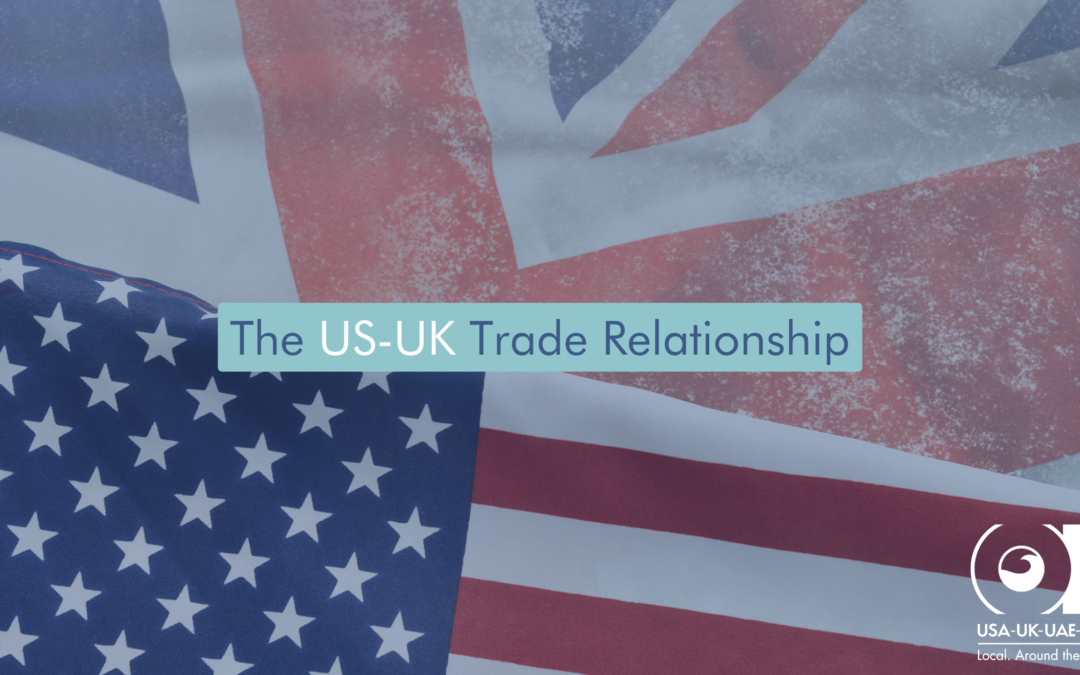
The US-UK Trade Relationship
The US-UK trade relationship is one of the largest in the world, with two-way trade between the countries valued at over $200 billion annually. The US is the UK’s largest single trading partner, while the UK is the seventh-largest trading partner of the US. Each country relies upon the other for a wide range of goods and services, including machinery, vehicles, chemicals, and pharmaceuticals.
This trade relationship—with hundreds of years’ worth of history—continues to be one of the strongest in the world, with both countries benefiting from a wide range of trade and investment opportunities. Despite some challenges, such as the impact of Brexit on trade relations, the US and UK remain committed to strengthening their economic relationship and pursuing new opportunities for growth and cooperation.
The United States and the United Kingdom enjoy a special relationship when it comes to shipping and trade, with a ton of benefits that make it easier for businesses to trade between the two countries. Here are a few examples of rare—if not unique—benefits:
- Tariff-free Trade: The US and UK established a free trade agreement that allows for tariff-free imports and exports between the two countries. This means that businesses do not have to pay additional taxes when shipping goods between the two countries, providing some additional marketplace advantages. This is particularly beneficial for smaller enterprises who might not be able to reliably afford to move their products (or receive them) in large enough volume. That means a local woodworker can sell his handcrafted dining room chairs to customers in the UK.
- Mutual Recognition Agreements: The US and UK have mutual recognition agreements in place for various goods, including medical devices, pharmaceuticals, and telecommunications equipment. This means that products that have been approved for sale in one country can be sold in the other country without undergoing additional regulatory approval, reducing costs and increasing efficiency.
- Streamlined Customs Procedures: The US and UK have established streamlined customs procedures for businesses engaged in trade between the two countries. This includes expedited clearance procedures for low-value shipments, which allows businesses to move goods more quickly and efficiently. This has a ton of value for a huge range of businesses, particularly in a society that’s grown accustomed to rapid transit for their products.
- Reduced Administrative Burden: The US and UK have worked together to reduce the administrative burden on businesses engaged in cross-border trade. This includes simplifying import and export procedures, reducing paperwork, and making it easier for businesses to comply with regulatory requirements. Businesses are much less likely to need to engage full-time regulatory compliance experts to move their products from one country to the other.
In short: US-UK trade is one of the easiest for businesses of any size to reliably manage. The simplicity of conducting business between the nations has helped expand the available marketplace for countless enterprises, particularly over the past few decades. These established practices have helped drive economic growth and job creation in both countries, and has strengthened the already close ties between the US and UK.
Brexit May Bring Some Changes, But That’s Uncertain (And Unlikely)
The United Kingdom’s exit from the European Union has left some unanswered questions and a bit of uncertainty for trade in the future. Some changes have already happened, but some are still open-ended. While we don’t expect a tremendous impact on shipping relations between the US and UK, there are a few that we should detail.
- Changes in Customs Procedures: Following Brexit, the UK is no longer part of the European Union’s customs union, which has led to changes in customs procedures for businesses engaged in cross-border trade between the US and UK. This has led to increased paperwork and delays at customs, as businesses must now navigate new regulations and procedures for importing and exporting goods. This has mostly been ironed out by now, as businesses can quickly adapt to these types of changes.
- Uncertainty around Trade Deals: The UK has been negotiating new trade deals with countries around the world following Brexit, including the US. However, the outcome of these negotiations is uncertain, which has led to increased uncertainty for businesses engaged in cross-border trade between the US and UK. That uncertainty is the most significant impact, but in recent months, there’s been a renewed push for a fresh free trade agreement within the United States’ political and business communities. A clear-cut deal will wipe away any remaining uncertainty.
- Potential for Tariffs: If the US and UK are unable to negotiate a free trade agreement following Brexit, there is a possibility that tariffs could be imposed on goods traded between the two countries. This would increase the cost of cross-border trade and could potentially have a negative impact on businesses engaged in international trade.
Overall, Brexit has caused a few hiccups in trade between the countries, and while the full impact on shipping relations remains to be seen, it is clear that businesses will need to navigate new regulations and procedures in order to continue to succeed in the global marketplace. The uncertainty around a new free trade agreement has been the most significant concern, but, for the most part, shipping practices have continued as normal.
Partners with Ties to Both Nations
The above benefits and uncertainties should make one thing clear: there’s a lot of value in working with partners who have a physical presence in both countries. A third-party logistics provider with offices on both ends of a transaction can help businesses easily manage the whole process, including the more recent procedural changes. Here are just some that a business like OL can offer:
- Local Expertise: By having physical offices in both the US and the UK, an organization like OL can provide businesses with local expertise in each country. This can include knowledge of local regulations, customs procedures, and market conditions, which can help businesses navigate the complexities of cross-border trade. Having access to local resources can mean a much better experience for businesses, particularly when it comes to last-mile deliveries.
- Faster Response Times: Having locations in both the US and the UK allows OL to respond more rapidly to customer needs. This can include providing real-time updates on shipment status, coordinating with local customs authorities, and addressing any issues that may arise during the shipping process.
- Lower Costs: A physical presence on both ends of a trade helps significantly cut costs associated with cross-border shipping. For example, they can employ their network of local partners to negotiate better rates, and can avoid the kind of expensive delays and errors that can occur when working with multiple parties across different time zones.
- Improved Customer Service: With locations and local employees in both countries, OL offers a much more deeply personalized and responsive customer service. This can include working directly with customers to address any concerns or issues, providing tailored solutions that meet their specific shipping and logistics needs, or meeting in person with a customer who prefers to work face-to-face.
There are countless advantages to partnering with a provider like OL, even when conducting cross-border business with countries that are as friendly and straightforward as the US and the UK. We like to think that OL is a great representation of the international ties between these countries—even though there’s an ocean between the offices, they’re all still in the same boat, so to speak.


